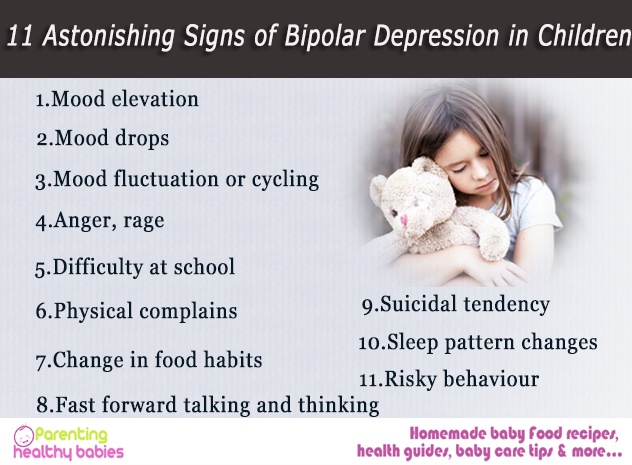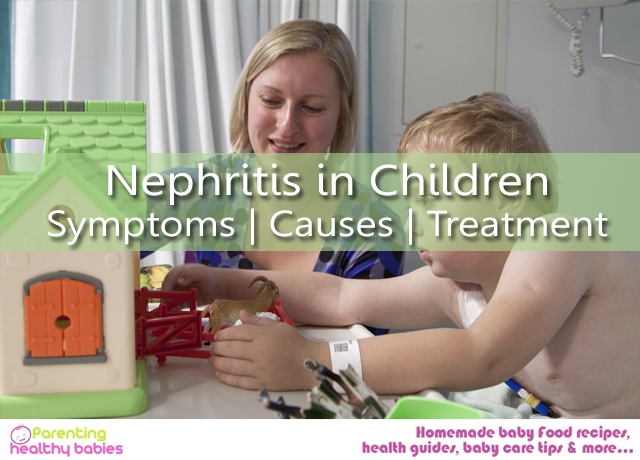Psychologic illness is a problem that is not easily apparent, especially in children. Bipolar disorder or bipolar depression is one such psychologic illness affecting the brain. Another name for this problem is manic – depressive illness. This illness may take its roots in childhood itself. If bipolar depression has a childhood onset, it generally takes a more severe form, as compared to the adult onset type.
Read More: Child Depression: 21 Symptoms To Watch Out For
Why is it called bipolar depression?
This disorder gets its name because children affected by it tend to ‘swing’ from one extreme behavioral pole to another. In simple words, sometimes their energy level will be very high, which is called the manic phase. At other times, the energy and mood level of the child will crash down, which is the depressive phase. These atypical mood shifts are characteristic of bipolar depression.
What causes bipolar depression in children?
Bipolar depression is essentially a brain dysfunction, without any specific known cause. It may be seen more often in children whose parents suffer from bipolar depression too, i.e. bipolar depression may be inherited from parents, but not always. It usually lasts for a lifetime. Sometimes, emotional, sexual or physical trauma or abuse in childhood may trigger bipolar depression.
So as a parent, how can you recognize bipolar depression in a child? Read on for warning symptoms of this disorder in children.
11 Astonishing Symptoms of Bipolar Depression in Children
Look out for these warning symptoms of bipolar depression in your child-
1. Mood elevation – extreme joy, elation, euphoria
A child showing frequent extreme behaviour could potentially be in the ‘manic’ phase of the disease. A child may be intensely happy without reason or behave absurdly as compared to children of same age. A child may experience a very high self esteem or ‘superhero’ like feeling wherein he/she can do or achieve anything. This unrealistic sense of self may point towards bipolar disorder.
Read More: 11 Foods that Cure Child Depression
2. Mood drops – sadness, crying, irritability
A child who feels sad or cries frequently without apparent reason may be going through the ‘depressive’ pole of the bipolar depression.
3. Mood fluctuation or cycling
A child may be intensely happy or joyful at times or very low, depressed, irritable and sad or angry at other times. Rapid mood variation is a sign of bipolar depression. These mood swings may occur several times in a day itself.
4. Anger, rage
Children with bipolar depression may feel a lot of rage and anger and have a very short temper. Children may not be able to understand what they are feeling and this makes it confusing for them and they are not able to control their anger.
5. Difficulty at school
A child with bipolar depression may experience school difficulties such as difficulty in concentration and focusing, with attention jumpinf from one task to other rapidly. Restlessness and lack of concentration may affect school work and home work as well as school grades.
6. Fast forward talking and thinking
A child with bipolar depression may speak rapidly, unable to follow his/her train of thoughts, flutter from one thought to another and speak in a disorganized or confusing way. This is because their mind is not processing thoughts properly and many different ideas are entering their mind at a rapid speed. A child himself cannot keep up with his/her thoughts.
7. Change in food habits
If you notice that your child starts to eat much more that he/she usually does, it may be a sign of bipolar depression. Conversely, if a child stops eating food he/she usually enjoys eating, it may indicate a tendency towards bipolar disorder. Ny change in eating habits, lack of interest or renewed interest in food can be an alerting sign for the parents.
8. Physical complains
Body aches, headaches and fatigue may occur in a child suffering from bipolar disorder. A child may also complain of frequent muscle pains.
Read More: Post Natal Depression: Sign and Symptoms
9. Sleep pattern changes
A child with bipolar depression may appear to for many days without apparent need for sleep. He/she is excitable, talking continuously and is a whirlwind of energy. Conversely, a child with regular sleep pattern may start over-sleeping. Basically, you have to look out for changes in normal sleep pattern of your child – over-sleeping or insomnia – both are causes of concern.
10. Risky behaviour
A child with bipolar depression tends to indulge in high risk activities without much concern for his/her own safety or others safety either. In older children and adolescents, alcohol or drug abuse and promiscuous sexual behaviour may be seen.
11. Suicidal tendency
Alarmingly, a child with bipolar depression may have suicidal thoughts and tendencies or talk about death and dying. This is a very serious concern and must be immediately taken for a psychiatric consultation.
Bipolar disorder or depression is a serious psychologic illness that must be looked into as soon as possible. A key warning sign is rapid swinging of behavior and mood, from one extreme to another. A child with mental illness feels lonely, confused and isolated. As a parent, you must try to understand that your child is going through and seek help from a mental help professional.
Child counselors and psychiatrists can help in this regards by providing medication, therapy and lifestyle guidelines. Good parental observational skills and an informed outlook can be a lifesaver for timely diagnosis of children suffering from bipolar depression.













